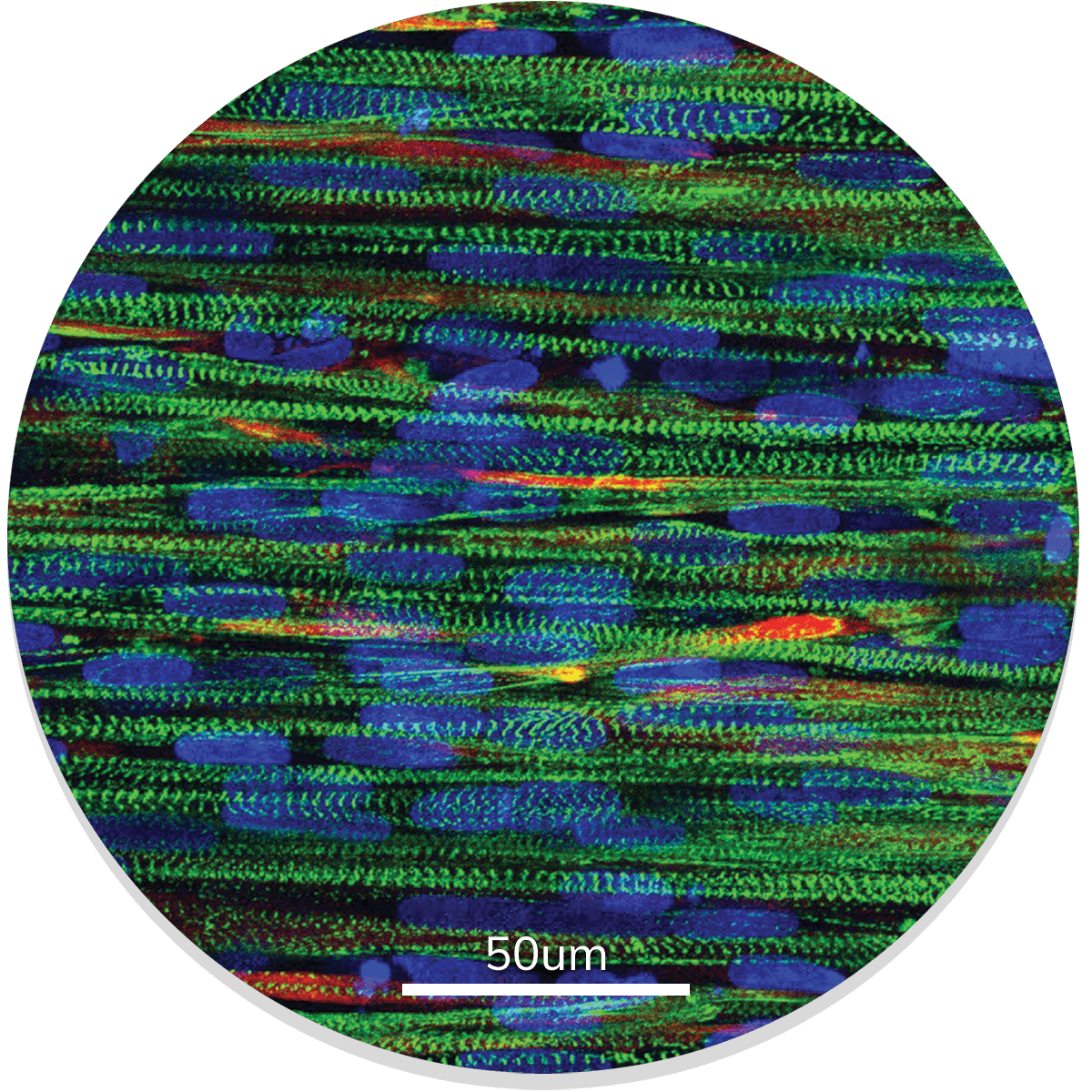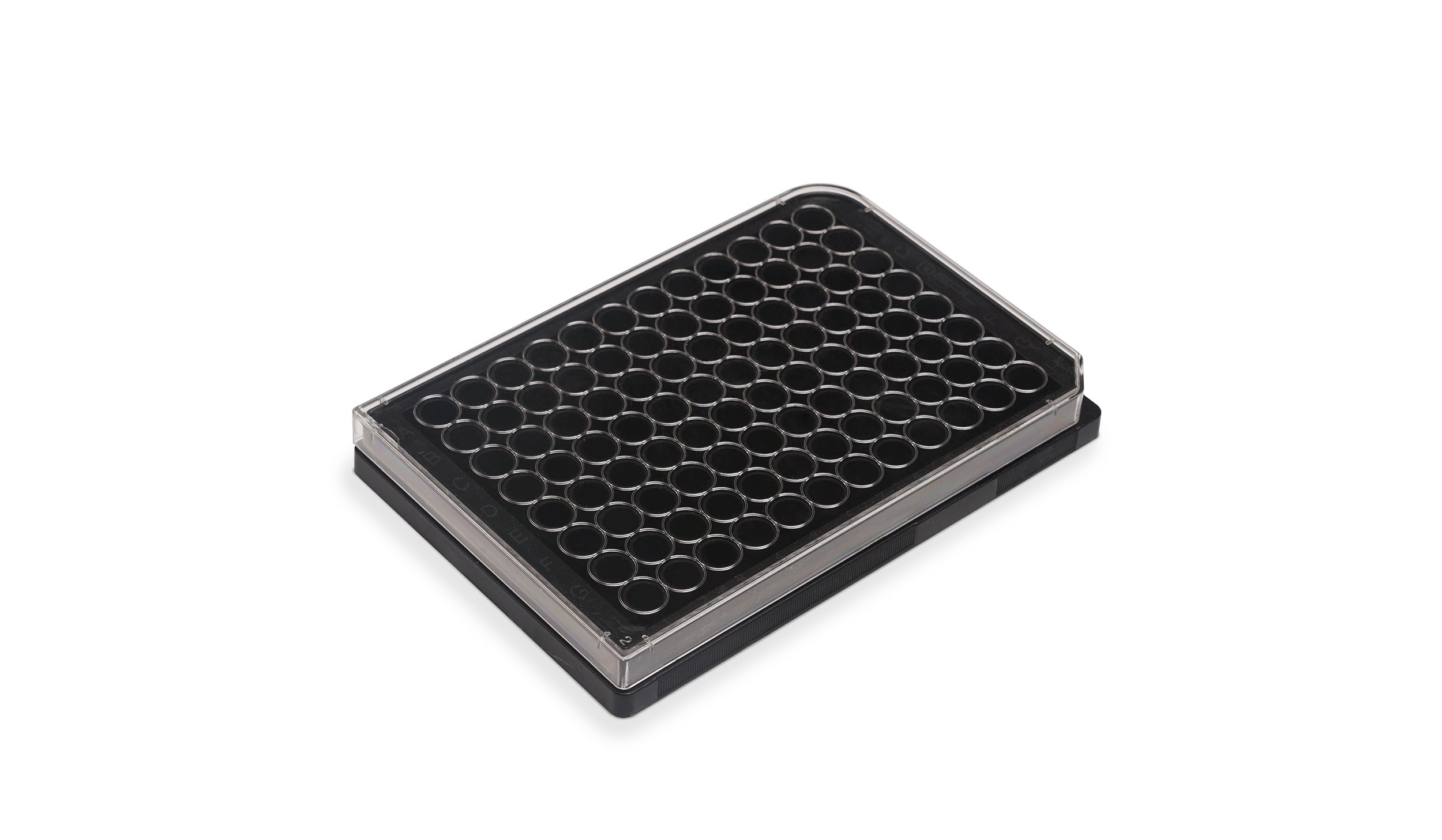Structurally Mature Your Cells and Tissues
A Versatile Platform for Creating Structured Cell and Tissue Models
NanoSurface Plates feature a biomimetic nanopatterned surface to enhance the structural development of cells and tissues and improve the physiological relevance of cell-based assays. Cells cultured on NanoSurface Plates exhibit enhanced structural and phenotypic development. NanoSurface topography promotes cytoskeletal reorganization, cellular alignment, and functional development of a variety cell types, including iPSC-derived cardiomyocytes, skeletal muscle, and neuronal cells.
NanoSurface Plate Catalog
NanoSurface Plates are available in standard microplate formats featuring No. 1.5 glass-bottom wells for high-quality imaging.
NanoSurface Plate Applications
NanoSurface Plates promote the structural and phenotypic development of many cell types, including cardiomyocytes, skeletal muscle cells, smooth muscle cells, cancer cells, fibroblasts, induced pluripotent stem cells, mesenchymal stem cells, human embryonic stem cells, neuronal cells, endothelial cells, and epithelial cells.
Cardiomyocytes
Skeletal Muscle
Neurons
Cancer Cells
Read the Application Notes
Enhancing the Development of hPSC-neurons by Engineering the Extracellular Matrix: an MEA and Microscopy Study
New Tools for Understanding the Role of the Extracellular Matrix in Cell Morphology: A Combined Photopatterning in Nanotopography Study

Key Features of NanoSurface Plates
Biomimetic Technology
Nanoscale topography mimics the aligned architecture and spatial scale of the native extracellular matrix.
Reproducibly Structured Cell Cultures
NanoSurface plates promote the structural alignment and development of adherent mammalian cells, improving reproducibility and physiological relevance.
High-Quality Imaging
NanoSurface Plates are compatible with high-magnification, high-NA transmitted light and fluorescence microscopy techniques. No spectral loss across commonly used fluorophores.
Industry-Standard Plate Formats
NanoSurface Plates are ANSI/SLAS-compliant to guarantee compatibility with existing instrumentation and workflows.









